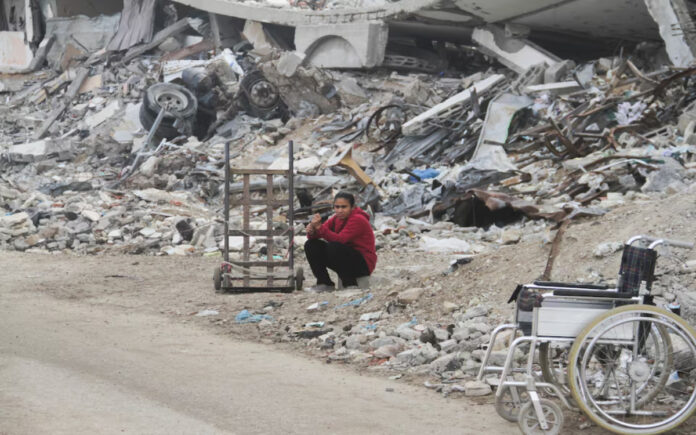Jerusalem: The Israeli government postponed a cabinet meeting scheduled for Thursday to approve a ceasefire agreement with Hamas, citing alleged delays by the militant group. Meanwhile, Palestinian officials reported that Israeli airstrikes in Gaza overnight had killed 77 people.
Hamas official Izzat el-Reshiq affirmed the group’s commitment to the ceasefire deal, which was brokered a day earlier and scheduled to take effect on Sunday. The deal aims to end 15 months of intense conflict.
WARNING: GRAPHIC CONTENT: Israel airstrikes killed more than 70 people in Gaza overnight, residents and medical services said, hours after a ceasefire and hostage release deal was announced to bring an end to 15 months of war between Israel and Hamas https://t.co/Ox2mTTpS4X pic.twitter.com/iAoqNXzy5E
— Reuters (@Reuters) January 16, 2025
International Mediation Efforts
U.S. President Joe Biden’s envoy Brett McGurk and President-elect Donald J. Trump’s envoy Steve Witkoff joined Egyptian and Qatari mediators in Doha to resolve a final sticking point. A U.S. official, speaking anonymously, stated that the issue revolves around the identities of certain prisoners Hamas wants released. Resolution is expected soon, the official added.
Israeli government spokesperson David Mencer confirmed that Israeli negotiators were also in Doha to finalize the agreement.
Key Points of the Ceasefire Deal
The agreement, facilitated by Qatar, Egypt, and the United States, proposes:
- A six-week initial ceasefire.
- Gradual withdrawal of Israeli forces from Gaza.
- The release of hostages held by Hamas in exchange for Palestinian prisoners in Israeli custody.
- Increased humanitarian aid, with 600 trucks, including 50 carrying fuel, to cross daily into Gaza.
However, the Israeli government’s approval remains pending. Prime Minister Benjamin Netanyahu delayed the cabinet meeting, accusing Hamas of introducing new demands. “The Israeli cabinet will not convene until the mediators notify Israel that Hamas has accepted all elements of the agreement,” his office stated.
Domestic Opposition
Hardliners in Netanyahu’s government continue to oppose the deal. Finance Minister Bezalel Smotrich’s Religious Zionism Party threatened to leave the government if military operations against Hamas do not resume after the first phase of the ceasefire. Similarly, far-right police minister Itamar Ben-Gvir vowed to resign if the deal is approved.
Protests erupted in Jerusalem, where demonstrators carried mock coffins and clashed with police in opposition to the ceasefire.
Escalating Violence
Despite the ceasefire announcement, Israeli airstrikes intensified, with Gaza’s health ministry reporting 81 deaths in the past 24 hours. Among these, 77 fatalities occurred after the ceasefire agreement was publicized. The Israeli military is investigating the reports, according to a spokesperson.
Also Read | China’s Export Ban Puts the Brakes on India’s EV and Solar Ambitions
Humanitarian Crisis
The conflict has devastated Gaza, killing over 46,000 people and displacing most of its 2.3 million residents. Aid trucks have lined up in Egypt’s El-Arish, awaiting border access to deliver critical supplies once the ceasefire takes effect.
Palestinians, like Mahmoud Abu Wardeh, expressed desperation for immediate relief: “We lose homes every hour. We demand for this joy not to go away… don’t waste it by delaying the implementation of the truce until Sunday.”
Regional and Global Implications
If implemented, the ceasefire could ease tensions across the Middle East. It also includes the release of 33 hostages, prioritizing women, children, and older men.
Israel launched its military campaign in Gaza following a Hamas-led attack on October 7, 2023, which killed 1,200 people and resulted in over 250 hostages being taken. The war has inflicted severe damage on Gaza while leaving Hamas’s governance intact, despite heavy losses.



